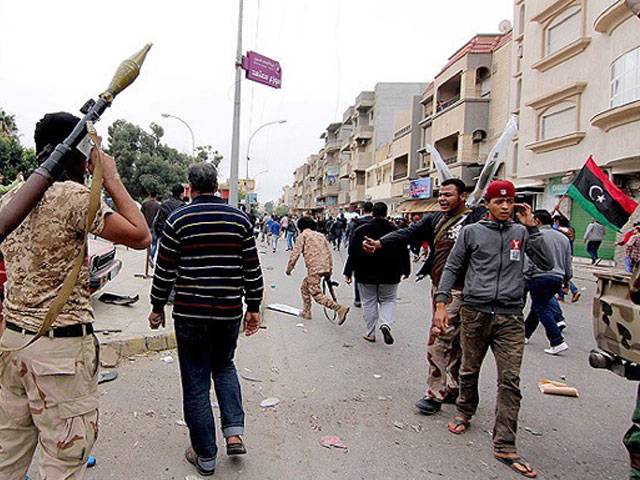TRIPOLI - A Libyan military commander on Friday called for the interim parliament to be suspended and a presidential committee to be formed to govern until new elections in what he described as a road map to “rescue” the country. Maj Gen Khalifa Haftar was a leading figure in the 2011 revolution against Muammar Gaddafi, but it was not clear how much influence he has even within the small, nascent army in a country where other militia groups are more powerful.
Since the fall of Gaddafi, Libya has had a fragile govt and armed forces unable to impose their authority on competing political factions and the brigades of former rebels who refuse to disarm. “The national command of the Libyan army is declaring a movement for the new road map,” Haftar said in a statement.
“We will hold meetings with different parties and groups regarding implementing this road map,” he said.
A spokesman for the General National Congress (GNC) parliament dismissed the statement. “He doesn’t represent the army,” Omar Humaidan said. “He is not even in Tripoli, the capital is secure.”
Libya’s army barely exists with most of its soldiers still in training or drawn from the ranks of former rebels who are often more loyal to their own regions, their commanders or their tribes than a national force.
Haftar was once a Gaddafi ally, but broke with the autocratic leader over the war with Chad in the 1980s. He later sought exile in the United States, but returned to become a commander of forces in the 2011 revolution.
The General National Congress is deeply split by infighting between the nationalist National Forces Alliance party and Islamists in the Justice and Construction Party, which is tied to the Muslim Brotherhood, and the Al Wafaa movement.
Since its election in 2012, the GNC has become increasingly unpopular with Libyans who see it has made little progress in the transition to democracy. Libya still has no new constitution.
But tensions have increased over its future, after its initial mandate ran out on Feb. 7. Its members agreed to extend their term in office to allow a special committee the stability to draft the constitution.
Rival political factions and militia groups have competing views on how the country should continue, with some calling for early elections and others supporting the extension of the parliament’s mandate.
Saturday, April 20, 2024
Libyan army for parliament to be suspended

Caption: Libyan army for parliament to be suspended
8:27 AM | April 19, 2024
8:09 AM | April 19, 2024
Pak economy improving, funds will be provided on request: IMF
9:57 PM | April 19, 2024
Minister advocates for IT growth with public-private collaboration
9:57 PM | April 19, 2024
Judges' letter: IHC seeks suggestions from all judges
9:55 PM | April 19, 2024
Formula 1 returns to China for Round 5
9:05 PM | April 19, 2024
Germany head coach Julian Nagelsmann extends contract till 2026 World Cup
9:00 PM | April 19, 2024
A Tense Neighbourhood
April 19, 2024
Dubai Underwater
April 19, 2024
X Debate Continues
April 19, 2024
Hepatitis Challenge
April 18, 2024
IMF Predictions
April 18, 2024
Kite tragedy
April 19, 2024
Discipline dilemma
April 19, 2024
Urgent plea
April 19, 2024
Justice denied
April 18, 2024
AI dilemmas unveiled
April 18, 2024
ePaper - Nawaiwaqt
Advertisement
Nawaiwaqt Group | Copyright © 2024





